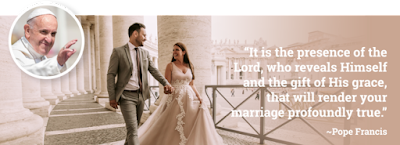MARCH 25/26, 2022
Today is the 4th Sunday of Lent.
We’re past the half-way point of the six weeks of Lent. The vestments are rose-colored as a sign … giving us an opportunity to re-evaluate our Lenten practices. Are we being too hard on ourselves? Or have we missed out on the past 25 days, and maybe need to step up our game.
Today is known as “Laetare” Sunday, from the first word of the Entrance Antiphon, which begins, “Rejoice, Jerusalem, and all who love her. * Be joyful, all who were in mourning; * exult,” taken from chapter 66 of the Prophet Isaiah.
Also, today, we heard the Gospel reading of the Parable of the Prodigal Son.
I spoke about this on Ash Wednesday, borrowing the acronym AHA to give us a formula for repentance: Awakening, Honestly, and Action as a means to change our spiritual situation for the better.
That lengthy reading, which is most likely almost too familiar to us, presumes some things that may escape us 2,000 years after its first telling.
In the Jewish inheritance laws, the older son gets double what his siblings get. So, in this case of the two sons, the younger Son made off with one-third of the Father’s estate. Oddly, this is not only legal – to request your inheritance before your Father’s death – but to cash in and spend it was also legal.
Legal, but not necessarily the most loving thing to do, and speaks to a broken relationship.
Continuing in the Law, Deuteronomy 21:18-21 says: “If someone has a stubborn and rebellious son who will not listen . . . bring him out . . . [and] all his fellow citizens shall stone him to death.”
This is not the Pharisees and the Scribes adding extra burdens to the Mosaic Law. This is the Mosaic Law.
What was due to the Prodigal Son on his return to his home town? Death.
Which raises a question: Why did the Father run out to meet his Son? To get there first? Before he was stoned to death? Is the Father’s embrace a paternal human shield to keep his Son alive?
After all, wealthy Middle-Eastern patriarchs don’t run as a rule. But here, the Father ran out not only to meet his wayward Son, but possibly to save his life.
The Son’s plan was to return as a servant – as a slave – on his Father’s estate. But slaves don’t wear sandals, robes, or rings.
The Father’s actions make the point that the Son is his Son … no matter what has happened.
This is the joy of the Son’s return.
This is the joy of the Father’s forgiveness.
But, the flip-side of this is seen in the actions of the older Son.
Here the sin is not external, but internal.
The older Son is offended by the generous love shown by his Father, while he also refuses to forgive his errant Brother.
The older Son’s un-forgiveness also speaks of broken relationships.
The Father is free to do as he pleases with his possessions, but the older Son is not justified in his un-righteous anger, pride, or selfishness.
Forgiveness is the key here. Forgiveness heals relationships … brings joy … and restores what was lost.
As we approach this altar to receive the Sacred Body and Blood, Soul and Divinity of Jesus Christ; let us pray to forgive. Five weeks ago, we exercised the Eastern practice of asking for and giving forgiveness – “Forgive me, a sinner.” and “God forgives, and so do I.”
As we move through the central point of the Lenten Season, may we engage and exercise the graces of forgiveness in our own lives and our personal situations.
Let us experience the joy, healing, and restoration of forgiveness as we move closer to Holy Week, the Paschal Triduum, and Easter.

















